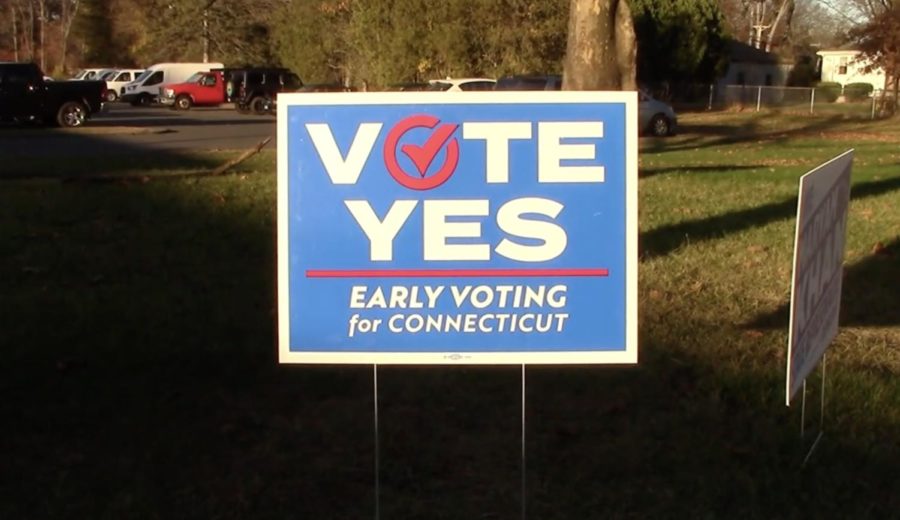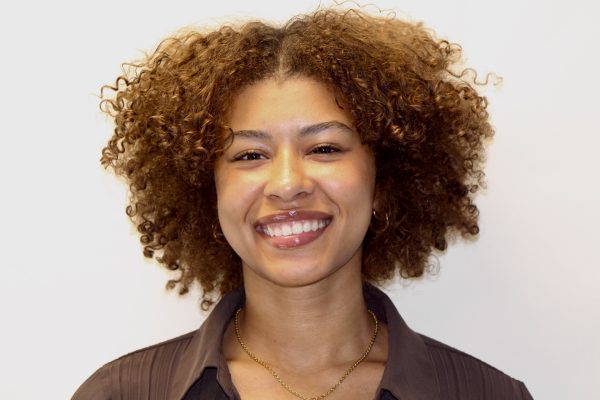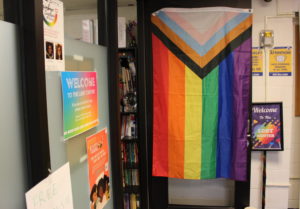How Early Voting in Connecticut Could Improve Minority Voter Turnout
This election season, 60.21% of voters showed support for in-person early voting.
December 12, 2022
Despite being considered progressive, Connecticut is one of four states without early voting, but it is heading in that direction, allowing for equal opportunities in future elections.
On Nov. 8, 60.21% of Connecticut voters voted in favor of allowing in-person early voting.
“The more opportunities we can give eligible citizens to cast a vote, the more they will turn out, and some people are not crazy about that idea,” Laura Smits, statewide president of the League of Women Voters of Connecticut (LWV), said.
Smits said the League of Women Voters is an organization that works to register and inform voters.
“We focus on anything that has to do with voting rights; How many polling locations there are, how difficult is it to register to vote, how difficult is it to do an absentee ballot?” Smits said.
In Smits’ work in protecting and expanding voting rights, she said early voting should have been an option in Connecticut years ago.
“Why we all have to rush on this one day is ridiculous,” Smits said. “Forty-six other states have it already and I wouldn’t call any of them progressive.”
Smits said that early voting would relieve the stress of Connecticut residents who cannot find the time to vote.
“Life has become extremely more complicated and why not have an extra day of in-person voting?” Smits said. “Tuesday is really specific and it should not have to be that way.”
Smits said that the straightforward language on the 2022 ballot was easier for voters to understand, which led to more Connecticut residents approving the early voting question.
The 2014 midterm elections had an early voting question on the ballot. Smits said due to the question being indirect and confusing, people voted against it.
“It wasn’t simplified, people didn’t know what it was, it was a lot of legalese,” Smits said. “That’s why this time around, the language was basically one sentence as opposed to a whole explanation.”
Smits said that Connecticut residents being uninformed on elections is due to the lack of local journalism.
“It used to be, not that long ago, that we had a lot of local newspapers,” Smits said. “When folks don’t have a local paper, it’s hard to find that information.”
Despite LWV being founded following the 19th amendment to educate women on their rights, Smits said it has now expanded to protect the rights of all Americans.
“In order to get Congress to agree to do that, we had to basically agree that it would just be for us, meaning white women,” Smits said. “Ever since then we’ve been focused on bringing in those other people, all disenfranchised people.”
Smits said it is especially important for members of marginalized groups to vote.
“I think it’s important that the government represents and looks just like the people it represents,” Smits said. “The more you vote, the more representative our government is going to look and the more it’s going to look like you and that’s the important thing.”
Kymani Campbell, a Black gay man from Hartford, is a full-time employee at Target. Campbell said he would have voted if he had more time and was better informed.
“I didn’t vote mostly because I was working most of the day and I didn’t really look into where I could go to vote,” Campbell said.
Aside from working a full-time shift on Election Day, Campbell said adequate time to research would have led him to vote.
“I do think that having early access would make me more inclined to vote,” Campbell said. “I’m not that educated on the people running in this election so I didn’t want to just make a guess.”
Campbell said he knows he is left-leaning; however, he did not want to vote blindly, so he did not vote at all.
“Even though I would never vote for someone who represents the Republican party,” Campbell said. “For future elections, I would like to research on the candidates and learn what they stand for, what they want to change in our society, and how they plan on dealing with current societal issues that need fixing or addressing.”
Joyce Petteway of Waterbury was the Connecticut Federation of Democratic Women president up until last November. Petteway was also the vice president of the Waterbury Board of Education for eight years, and is a current civic leader.
“It’s going to be better for Black people and the Latino community to vote earlier because of all the different barriers that they have,” Petteway said.
Petteway said that early voting will positively affect voter turnout in Connecticut, specifically for minorities.
“I would think that even if it’s going to be three to five days it’s going to have a great impact on the voters in the state of Connecticut,” Petteway said.
Despite no longer being an elected official, Petteway used the biggest platform she had, her church, to inform people of the chance to make a change in this midterm election.
“In my church when it was close to election time, I got the opportunity to speak to the audience in reference to voting yes on the ballot,” Petteway said.
She said she has become increasingly passionate about this issue in light of the Jan. 6th insurrection.
“We were threatened with losing our democracy this year,” Petteway said. “That’s why I was really pushing for voters to check that box for early voting because it’s going to give more people an opportunity to be involved in democracy.”
Petteway said that another reason she deemed this midterm election especially important was due to the overturning of Roe V. Wade.
“When you see them trying to take away a freedom that has been in process for over 50 years, that is a dress rehearsal for taking other freedoms away,” Petteway said.
Perris Seay, a 21-year-old African-American and Afro-Caribbean resident of Bloomfield said he did not vote this year due to a lack of information.
“I was honestly oblivious to it until the actual day came,” Seay said. “By then I wasn’t willing to vote for someone whom I hadn’t sufficiently researched.”
With more than one election day, Seay said he would have been more inclined to vote if he had time to educate himself.
“More information on the reason I’m voting with more information about the candidates through any media would’ve helped,” Seay said. “I definitely would have been more likely to vote if I had several days to do it.”
Gabe Rosenberg, the chief of staff of the Secretary of State’s office, said the office is actively working to keep up with social media and inform younger generations in different ways.
“We have an 18th-century voting system and we’re trying to make it work in the 21st century,” Rosenberg said. “We’ve experimented with Snapchat, TikTok, and Instagram to get the broadest reach that we can possibly get so people know how to participate.”
But, Rosenberg said some social media platforms do not allow election content.
“Twitter does not accept political advertisements,” Rosenberg said. “Facebook does but you have to have all your ads in the week before the election and then they shut it off.”
Rosenberg said supporting local journalism is the best way for people to educate themselves on elections.
“Everyone should get a newspaper subscription,” Rosenberg said. “I know I sound like a 90-year-old person when I say that, but that is where you get a lot of information.”
Jess Zaccagnino, the policy counsel of the American Civil Liberties Union of Connecticut, said despite having a progressive reputation, Connecticut’s voting laws are conservative.
“Honestly I think Connecticut is more of a purple state than people realize,” Zaccagnino said. “It’s even pretty common for folks to vote in a more conservative way at the local level and then vote in a more liberal way at the federal level.”
Even when Connecticut begins to allow early voting, Zaccagnino said despite making progress, it will still be one of the most conservative states in terms of voting laws.
“I’ve heard talks recently from administration of aiming for three-five days of early voting,” Zaccagnino said. “Which would put us at the absolute bottom of the barrel.”
Zaccagnino said the few extra voting days that Connecticut is fighting for is a fraction of the average number of additional voting days that other states have.
“The average number available across the country is 23 actual physical days of voting,” Zaccagnino said. “We just tend to be pretty conservative and I think some of it is a cultural thing.
Zaccagnino said it is consistent with the culture of Connecticut to take a long time to change constitutional laws, and voting rights have been no different.
“We have this reputation as being the ‘Land of Steady Habits,’” Zaccagnino said. “Sometimes it takes us a really long time to put out the legislation.”
Zaccagnino said that voting laws in particular are harder to change because they are written into The Constitution of the State of Connecticut.
“Other states don’t deal with voting that way,” Zaccagnino said. “It’s a lot easier to change it if it’s just passing a law once during a legislative session, versus having a really long campaign to pass.”








